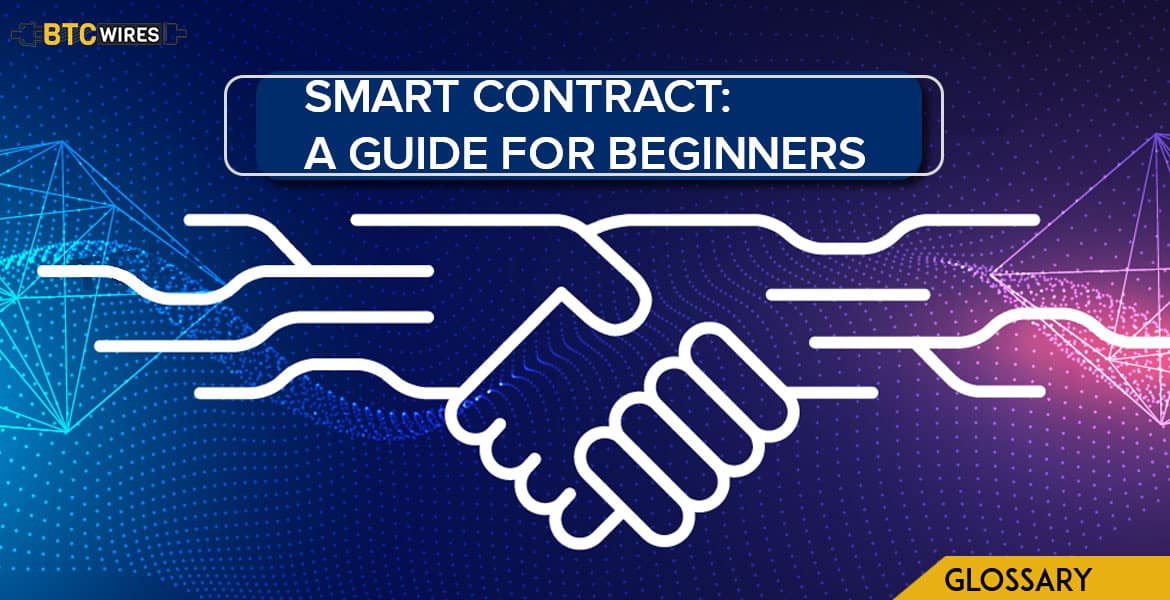A smart contract is a computerized convention planned to carefully

A smart contract is a computerized convention planned to carefully encourage, confirm, or uphold the transaction or execution of an agreement. Smart contracts permit the execution of credible transactions without third parties. These transactions are trackable and irreversible. Smart contracts were first proposed by Nick Szabo, who coined the term, in 1994.
Advocates of smart contracts assert that numerous sorts of legally binding conditions might be made in part or completely self-executing, or both. The point of smart contracts is to give security that is better than traditional contract law and to lessen other transaction costs related with contracting. Different cryptographic forms of money have executed various sorts of smart contracts.

What Do Smart Contracts Do?
Smart contracts are complex,and their potential goes past the basic advantages of exchanges – they can execute transactions in extensive fields, from legitimate procedures, to protection premiums, to crowdfunding understandings, to money related subordinates etc. Smart contracts can possibly disintermediate the lawful and money related fields; specifically, by simplifying and automating normal and monotonous procedures for which individuals right now pay legal advisors and banks sizable expenses.
Why to trust Smart Contracts?
Smart contracts are outlined and executed inside blockchains, and accordingly, they acquire a portion of the blockchain’s properties:
- They’re immutable, which implies a smart contract can never be changed and nobody can mess with or break an agreement.
- They’re disseminated, which implies that the result of the agreement is approved by everybody in the system, much the same as an exchange on a blockchain. Appropriation makes it impossible for an attacker to compel control to discharge reserves, as every single other member would distinguish such an endeavour and term it as invalid.

Benefits of Smart Contracts:
Explicit programming algorithms in centre and blockchain properties like decentralization, straightforwardness, misrepresentation obstruction, and others make smart contract a trustworthy option for setting up business relations and performing transactions.
As an alternative, contracts with a focal plan of action, here are the advantages that smart contracts offer organizations:
- Coordinate dealings with clients: Smart contracts eliminate the requirement for mediators and take into account straightforward, coordinate associations with clients.
- Protection from disappointment: Since organizations aren’t reliant on an outsider, no single individual or substance is responsible for information or cash. Decentralization implies that regardless of whether any individual leaves the blockchain ecosystem, the system will keep on functioning with no loss of information or audit trail.
- More trust: Business assertions are naturally executed and authorized. Additionally, these understandings are unbreakable
- Misrepresentation decreases: Since smart contracts are put away in an appropriated blockchain arrangement, their result was approved by everybody in that system.
- Cost productivity: Taking out intermediaries expels extra expenses, permitting organizations and their clients to interface and execute straightforwardly as well as to do such with low to no charges for transactions.
- Record keeping: All agreement transactions are put away in subsequent request in the blockchain and can be accessed alongside the entire review trail.
Where smart contracts are being used?
Smart contracts are picking up prevalence and have just been actualized in different blockchain ventures. Here are few promising cases of smart contract implementations in various ventures.
Banking: Banking may be the primary business where smart contracts may appear as the most important alternative to the traditional contracts. Smart contracts make installments and in addition credits, and almost all other money related tasks truly mechanized.
Health Care: Smart contracts can likewise enhance human services. They can streamline forms for protection preliminaries, increment access to cross-institutional information, and lift trust in tolerant security. Verification, approval, and character affirmation stay open issues for smart contracts executed on blockchain systems.

Example of smart contracts in the human services industry is Dentacoin. Dentacoin expects to unite patients and dental practitioners in networks to enhance dental care and make it moderate around the world.
Legal Issues:The traditional model of settling lawful issues and ensuring archives is likewise offering approach to smart contracts. Smart contracts dispose of the requirement for authentication, offering a automated and impartial as well as a cost-effective arrangement.
Nottar.io represents the idea of authorizing archives utilizing the Ethereum blockchain.
Government:It may be most intriguing to research the potential effect of decentralization advancements on monopolistic circles, particularly government frameworks.
Australian organization Horizon State is attempting to give voting and different instruments to encourage the law based process. Especially, Horizon State means to offer a blockchain-based voting biological system that backings secure, financially smart campaign tasks for a scope of decision writes and voting parameters. The essential objective of Horizon State is to empower straightforward, unprejudiced voting in nations around the globe.
By acquiring blockchain properties, smart contracts offer immutability and circulated stockpiling, which is the thing that recognizes them most from customary assertions. Immutability and appropriated stockpiling enable smart contracts to end up a trustworthy means for making business understandings and performing exchanges.
Blockchain innovation is now affecting organizations. Obviously, it is hard – or even unimaginable – to change the way enterprises work with the snap of a finger. Huge changes require some serious energy. Notwithstanding, effective and promising use cases for the blockchain and smart contract innovations, specifically, are laying the preparation for the eventual fate of the business.

